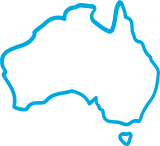
Soft skills are non-technical abilities like communication, teamwork, and problem-solving that help you succeed in the workplace. These skills are transferable across jobs and industries, making them essential for long-term career growth.
Employers value soft skills because they influence how you work with others, adapt to change, and contribute to a positive workplace. While technical skills can get you the job, soft skills often help you progress and stand out.
What Are Soft Skills?
Soft skills include interpersonal behaviours, personality traits, and everyday capabilities that make you effective at work. They’re developed throughout life and can be strengthened through experience, training, and feedback.
Top 10 Soft Skills Employers Look For
Here are ten essential soft skills that are highly valued across all industries:
- Teamwork
Work effectively with others and build strong relationships. - Initiative and Innovation
Take responsibility, start projects, and find creative solutions. - Planning and Organising
Set goals, prioritise tasks, and manage time efficiently. - Oral Communication
Speak clearly, listen actively, and engage in meaningful conversations. - Digital Literacy
Use technology confidently and critically, including software and online tools. - Reading
Understand and interpret written information accurately. - Writing
Communicate clearly in writing for different audiences. - Problem Solving
Identify issues, evaluate options, and implement solutions. - Learning
Apply new information to improve decision-making and adapt to change. - Numeracy
Work with numbers and use maths to solve problems.
How to Include Soft Skills in Your Resume
When writing your CV or resume, highlight the soft skills that match the job you’re applying for. A good approach is to list four or five key skills in your profile or summary section. You can also demonstrate these skills through examples in your work experience.
How to Improve Your Soft Skills
If you’d like to strengthen your soft skills, try these practical steps:
- Join group projects or volunteer work to build teamwork and communication.
- Take short courses or online learning to boost digital literacy and problem-solving.
- Ask for feedback from colleagues or mentors to identify areas for growth.
Why Soft Skills Matter
Soft skills are just as important as technical skills when it comes to career success. By developing these abilities and showcasing them in your job applications, you’ll be better prepared for opportunities and future growth.
You may also like

How to manage your nerves in a job interview
Let’s face it, job interviews can be nerve-racking. […]

Getting Career Ready for 2026
If you’re thinking about putting your job search […]
 Skillset would like to acknowledge and pay respect to the traditional custodians of the lands on which we work.
Skillset would like to acknowledge and pay respect to the traditional custodians of the lands on which we work.We are honoured to be on the ancestral lands of those whose cultures are among the oldest living cultures in human history. We pay respect to the Elders, past, present and to the younger generation of the community who will be the future leaders in years to come.

